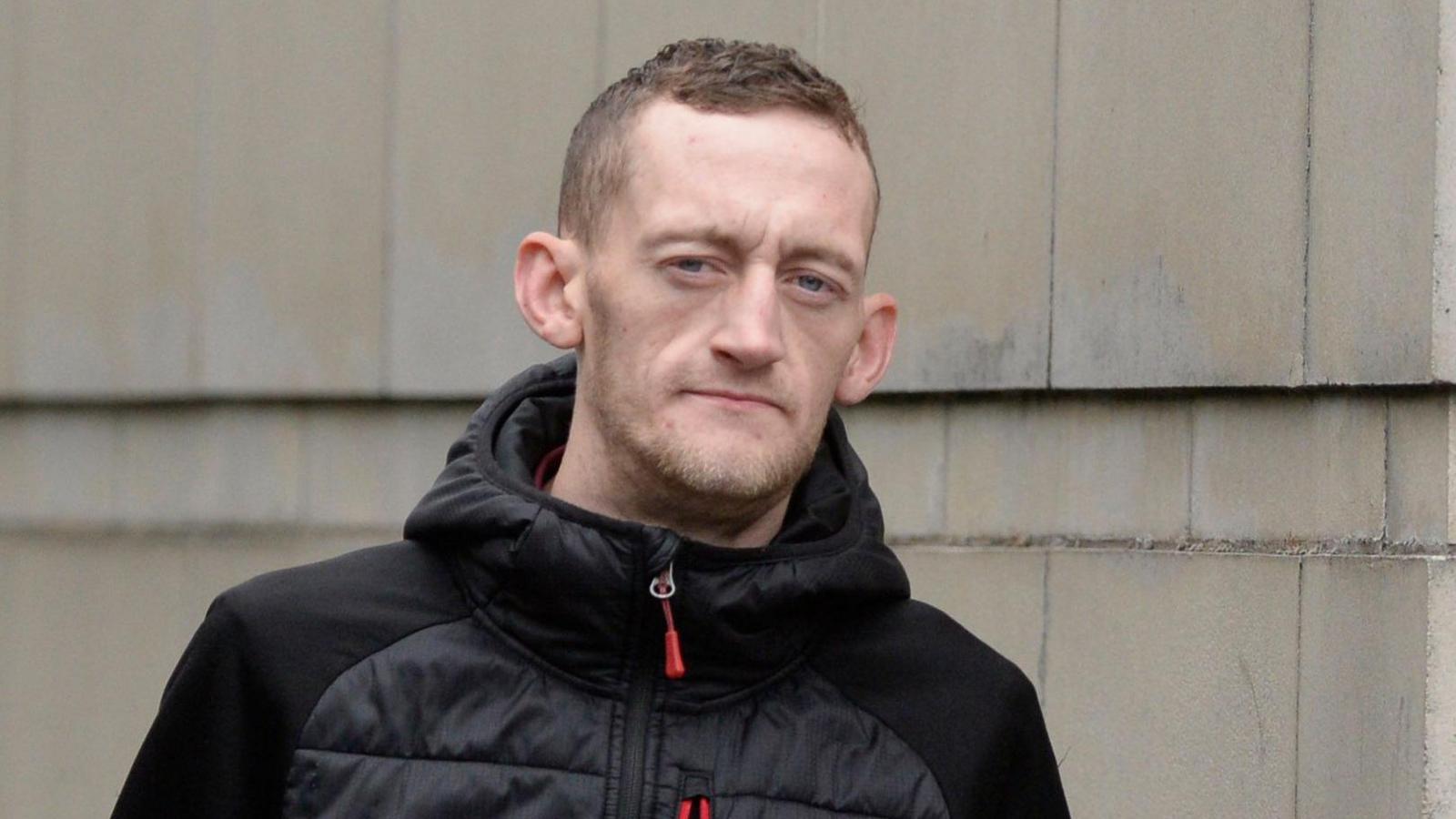Baby murder court hears of 'severe injuries'

Craig Rowland denies murdering his son Lewis
- Published
The trial of a County Armagh man accused of murdering his infant son has heard a non-accidental brain injury sustained by a 13-week-old baby was one of "most severe" a medical expert has seen.
Craig Rowland, 29, of Millington Park in Portadown, is charged with the murder and manslaughter of Lewis Oliver Rowland, who died on 20 October 2018, which he denies.
Lewis was admitted to Craigavon Area Hospital with "serious head injuries" in November 2015.
The infant died three years later after complications arising from surgery.
On Tuesday, the jury at Belfast Crown Court heard from a paediatric neuroradiologist who specialises in brain and spinal injuries in children.
He was tasked with examining a number of scan images taken in the aftermath of the toddler's death.
The doctor said the brain injury that Lewis had sustained was likely caused by a "forceful shaking episode".
He added it was similar to an injury sustained in a road traffic collision or a fall from an enormous height.
'Abrupt' change in behaviour
The court heard that Lewis's brain injury was "severe" and one caused by "traumatic force".
"Once a child sustained a brain injury this severe, there would have been an abrupt and sudden change in their behaviour and demeanour," the doctor added.
This would have included seizures and changes in levels of consciousness.
When asked how Lewis had sustained the injury, the doctor said the level of bleeding on the brain and no swelling meant it was likely to have been caused by a "forceful shaking injury".
He added the degree of forced used would have been "inappropriate" and that it would have been sustained within a 24-hour period of Lewis being admitted to hospital.
"He needed urgent treatment to preserve life and his brain injury, if not treated promptly, would almost certainly have resulted in his death," the doctor added.
'Momentary loss of control'
When questioned by Mr Rowland's defence if the term "non-accidental injury" indicated if an injury was intentional or deliberate, the doctor said no.
"Most of these types of cases and most of these types of injuries are sustained in a momentary loss of control... and not a pre-meditated desire to inflict injury," he said.
Mr Rowland, who is on bail, has previously pleaded guilty to a charge of wilfully neglecting his son.
The child's mother, Laura Graham, 31, has also pleaded guilty to the same charge.
The trial continues.